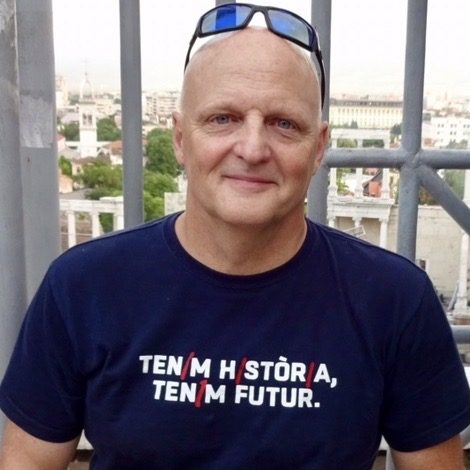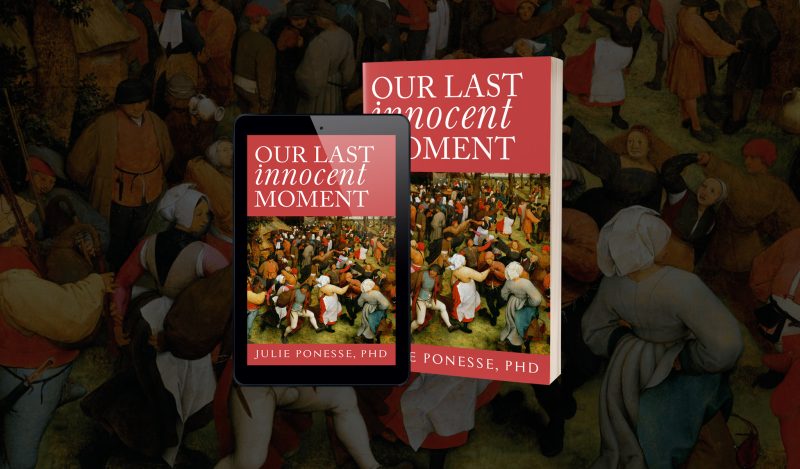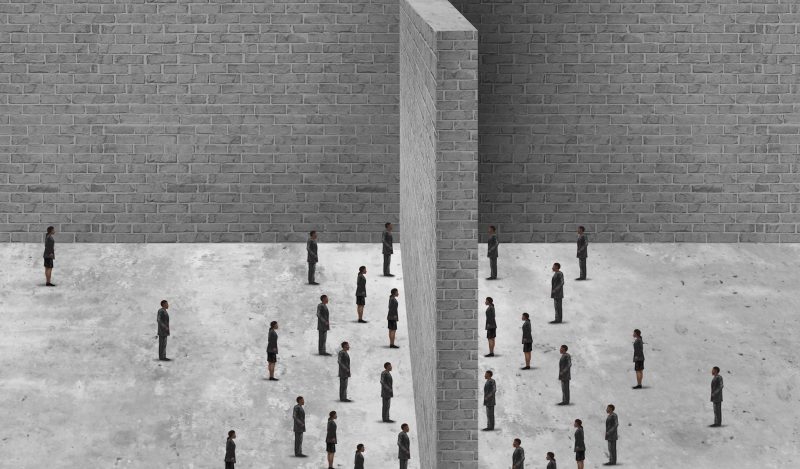One of the central tenets of psychotherapy is that the person seeking help must try to deal in the most honest way possible with the realities of his or her inner life, no matter how disturbing the elements found within might at first be or seem to them.
In light of this, and the enormous uptick during the last half-century in the number of Americans that have recurred to psychological care at one time or another in their lives, present-day members of our society should be the most painfully honest in the nation’s history, marked by an ability to take on their innermost fears and demons with greatly enhanced levels of courage, equanimity and self-containment.
Maybe it’s just me, but it seems that just the opposite is going on in our culture.
Rather than doing the often somber but also immensely rewarding work of finding out who and what terrifies them, and engaging in the disciplined process of developing a personal method for putting these external factors in a mental place where they do not greatly hinder their own search for meaning and happiness, I see—especially among the credentialed under-fifties— a marked tendency toward trying to palliate angst by wildly pointing fingers at others.
But perhaps even more alarming than this same cohort’s constant attempts to unload their anxieties onto others, are their widespread attempts to promote the banishment of certain words, terms and symbols, and in this way, prohibit the full exploration of realities that seem to greatly frighten them.
These practices are not only immensely disruptive to the already difficult challenge of establishing and maintaining fluid social relations, but frankly ignorant from the point of view of both established linguistic theory and, as I have suggested, recognized psychotherapeutic practices.
Every student of basic linguistics learns that since the publication of Saussure’s Course in General Linguistics in 1916, it has been generally agreed that the relationship between the sign (in this case of our linguistic vigilantes the word or term they seek to strike from circulation) and the signified (the reality that disturbs them) is completely arbitrary.
Put another way, words have no organic or stable semantic relationship to the realities that people deign to have them to represent. This being the case, eliminating the sign (the element of language) cannot in any way eliminate the signified (reality), however much some might want it to be the case. Rather, that haunting reality remains exactly where it was, waiting—since language never sleeps— for newly semanticized linguistic signs to come along to give it new life in human minds and thoughts.
Similarly, would it be possible to find a psychotherapist who would look kindly on a course of treatment centered on suppressing or repressing, rather than exploring and confronting, the things that disturb a patient? Would he or she see that as a sustainable route to improved mental health and existential resilience?
I strongly doubt it.
Most would say that doing so would not be very useful, and could in fact serve to greatly multiply the sense of unease generated by the patient’s original encounter with the anxiety-causing agent(s), while perhaps even casting him or her into a cycle of unhealthy compulsive behaviors.
And yet, again, everywhere I look in the printed visual and spoken archives of our present-day culture, this is exactly what millions of—sad to say again, mostly young and youngish people— appear to be doing.
Given what psychology and psychiatry generally tell us about the effects of suppression and repression of those feeling depressed or simply unsatisfied, is it any wonder such people’s demands for spiritual compensation appear ever more rabid and unquenchable? Or that they seem to be compulsively doubling and tripling down on their supposed “right” to suppress and cancel others?
The reasons for this mass flight from the basic tasks of psychic maturation, with its accompanying and ultimately puerile campaigns of linguistic assassination, are many.
However, given the strong link between these practices and their promoters’ generally high levels of educational achievement, it is hard to not look toward the sociology of our educational institutions in our search for answers.
Aggression and Repression in Academe
A central conceit of our contemporary Western European and North American cultures, derived from the influence of the Enlightenment upon them, is that the refinement of the mind through study leads necessarily to a diminution of the well-known human tendency toward aggression. Not surprisingly, this presumption heavily conditions the self-images of people that inhabit our society’s institutions of learning.
For many of them, aggression and/or the desire to dominate only really exists in those who have not been able, or have not wanted to embark on a process of enlightenment similar to the one they see as having defined their lives.
It’s a nice story. But does it really make any sense? Of course it’s true that social circumstances can both incrementally moderate and exacerbate certain basic human drives. But it is hard to believe that it can largely cancel them out. More specifically, do we really believe that reading books really diminishes the well-known human tendency to seek dominion over others?
It seems doubtful.
But this doesn’t stop people from continuing to think it is true.
In my 30+ years in academia I almost never heard any of my colleagues speak frankly—in the way, say, people do in business, sports and so many other walks of life—of their desire for power or to achieve victory over others. And since they generally did not admit to having any inherent tendency toward such derivations of aggressiveness, I seldom ever witnessed a clear and unambiguous apology from any of those who had clearly damaged or compromised the dignity of others.
And yet, all around me were walking wounded, people who had very much been treated as the playthings of “leaders” obsessed with power and the ability to make or break the lives of others.
Our academic institutions may, in fact, be wracked by some of the more endemic levels of psychic repression in our culture. More than other professional venues, it seems, they select for, and are peopled by, individuals who are deeply uncomfortable with their own quite natural proclivities toward aggression and dominance and have for this reason created cultures where the subject is seldom openly broached.
By trying to pretend these proclivities are not present in their lives in the way they are in others, they effectively condemn themselves to the well-known cascading effects of denial. The more they hold themselves up as supremely civilized and above the patterns of aggression that plague the unwashed, the more relentlessly encroaching and controlling they tend to become.
This culture of repression, in which “I” am endlessly pure and only “others” seek dominance has a great deal to do with not only generating the puerile cancel culture described above, but also fomenting the casual cruelty with which so many credentialed people and credential-granting institutions treated, and in many cases continue to treat, those to whom they were allegedly connected through bonds of trust, fellowship and mutual protection during the Covid crisis.
You see, in their own eyes, people like them simply don’t “do” cruelty in the way others do.
And therein lies the biggest untruths they tell themselves: that they’ve somehow killed the monster inside by pretending it’s not there.
As every great religious tradition reminds us, the proclivity to do ill to others is vividly present in everyone during the entire course of our lives on earth, and that the first and most effective step towards ensuring that this inner monster does not take control of our destinies is acknowledging its enduring presence within us. It is then, and only then, that we can shape effective and enduring strategies to keep it at bay.
But doing this, of course, requires introspection, which doesn’t always feel good, and certainly won’t increase your numbers and prestige in the Twittersphere, or your chances of being seen by the higher-ups as having the prized ability to humiliate others without breaking your smile.
Inner peace and resilience vs. the acquisition of fleeting accolades.
Such a dilemma. No?
Published under a Creative Commons Attribution 4.0 International License
For reprints, please set the canonical link back to the original Brownstone Institute Article and Author.









